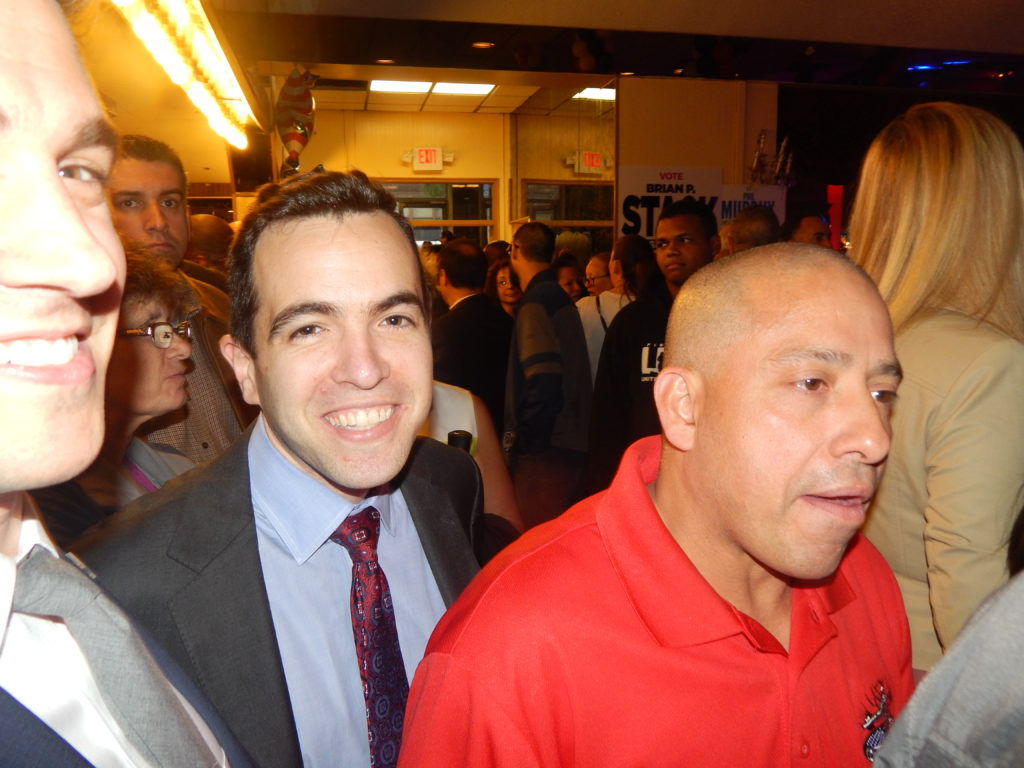Platkin Avoids New Brunswick Freedom of the Press Case

State Attorney General Matt Platkin is not taking sides in an evolving press freedom case out of New Brunswick, but that doesn't mean he has nothing to say.
A letter this week from the AG's office rather skillfully gave comfort to both positions before the court.
The relevant case involves only one city, but the principle involved can be far-reaching, not only for the press, but for average people who care about local government.
Charles Kratovil, who runs a New Brunswick media site, learned a few months ago that the city's civilian police director, Anthony Caputo, lives in Cape May, about two hours away. Caputo also sits on the city Parking Authority, a position that, logically, should require residency in town.
Kratovil brought his findings to city officials, looking for comment.
Instead, he got a "cease and desist" letter threatening legal action if he wrote the story.
To his credit, Kratovil didn't back down; he filed suit to challenge the cease and desist letter with help from the ACLU.
The city's argument is that publication of where Caputo lives would violate "Daniel's Law." This measure came about after a man invaded the home of a federal judge in 2020 and killed her son.
The law can prevent addresses of judges and just about all law enforcement officials from being publicly revealed.
There is an obvious discrepancy here.
Kratovil has said he only wants to report where Caputo lives - Cape May - not his actual address. That's a big difference.
Since the suit involves a law enforcement issue, the AG is required to weigh in.
And on Monday, the AG acted.
It made two broad points, but avoided an endorsement of either side.
First, it strongly endorsed the concept and rationale of Daniel's Law. It said:
"Daniel’s Law, like its federal counterpart, addresses a problem of the highest order: the increasing threats judges and law enforcement officers face to their lives and their families for doing their jobs." And it points out that the state has "extraordinary compelling interests" to try to eradicate those dangers.
All well and good.
But then, the AG makes another point. This case is not really about Daniel's Law.
"This case, however, does not present a facial challenge to Daniel’s Law. To the contrary, plaintiff’s brief is clear: he is not seeking to have the statute invalidated generally, and is seeking only as-applied relief as to him, for his particular factual situation."
That "factual situation" is reporting what is legitimate news - the fact that a top city official lives miles away from the city he serves.
The AG also noted - as the ACLU has said itself - that the journalist obtained information about Caputo's residence from public records in Cape May County.
Still, the AG said it would not "participate" in the case at this time.
The next hearing is set for Sept. 21.
The judge - Joseph Rea - now has the AG's input. It strongly backs Daniel's Law, but at the same time, opines that this case does not challenge Daniel's Law.
We will find out next week if that helps the judge.






My question has always been: Since when do judges and law enforcement officers get the ELITE treatment that none of the rest of us get???? Are they part of the state monarchy??? If judges and law enforcement did their jobs properly and used Due Process and Equal Protection of the Laws, instead of their personal biases or some lobbying firm, law firm, or political party having their ears, we wouldn't have to worry about judges and LEOs complaining about their protection. First, the government pukes want to disarm us. Then they want to de-fund the police. Then they want to allow the police to abuse the citizenry. Then the judges want to sentence law-abiding citizens to excessive sentences for doing nothing. (See violations of 2nd Amendment Rights as an example). If judges and LEOs don't want their addresses published because they are violating the citizenry's rights, then maybe judges and LEOs should have judicial and qualified immunity removed. Judicial immunity, and its progeny, is a 400 year old archaic doctrine devised during the old English Star-Chamber era. Time for ALL government immunities to be disbanded with. Then we wouldn't have the problem of Judges and LEOs worrying about their safety.